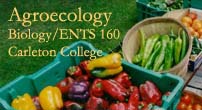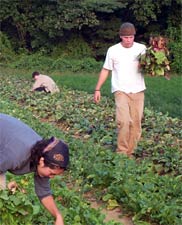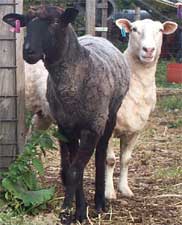
Farmelton
The Carleton Farm
A project of the Bio 160 Agroecology Course


College Name
Hampshire College
Brief Description of College
Hampshire College is a liberal arts college in Western Massachusetts with 1350 students located on an 800 acre campus that was founded in 1970.
Farm Size
400 acres.
Produce of Farm
Vegetables (beans, broccoli, beets, cabbage, carrots, cauliflower, corn, edamamae, eggplant, flowers, garlic, herbs, kale, kohlrabi, leeks, mustard greens, onions, peppers, popcorn, potatoes, pumpkin, rutabaga, radishes, salad mix, spinach, Swiss chard, sweet potatoes, tomatoes, turnips, winter squash), eggs, honey, maple syrup, meat products. Also other crops varying from year to year.
Farming Approach
Organic with a focus on sustainability
Where Produce Goes
CSA and farmstand
How Farm is Funded
Through CSA and sale of products, college funding.
How Farm is Staffed and Supervised
Hired staff: Farm manager (has managed many other farms before), a CSA manager, and a School-to-Farm program coordinator. Students also work as part of projects, work-study, and through summer internships.
Purposes of Farm
Educational and Community Outreach
How Farm was Initiated
It began in the mid 1970s as a project of the Natural Science faculty to integrate science and experimental techniques intended to improve sustainable agriculture.
Other Information
Also have goats, chicken, pigs, and sheep.
Programs
The Farm Center runs a variety of programs for children and teenagers. There is a summer day camp for children ages 6-12 which teaches children about animals and the importance of respecting and taking care of the earth. There is also a farm apprenticeship program for students from age 14-21 with exceptional needs that teaches practical life skills such as carpentry, taking care of animals and plants, and social skills. The Farm Center also runs tours and programs for elementary school field trips.
Student and Faculty Research
The resources of the farm are available to both students and faculty for the purpose of developing research projects that are intended to increase sustainability. The largest project, led by faculty member Ray Coppinger, trained 1400 livestock guarding dogs for use in 42 states to replace poisons and traps used to keep predators away. Other projects have included designing a medicinal herb garden, compiling seeds and information for growing heirloom tomatoes, designing a sunflower oil powered tractor, creating a system for composting dining hall waste, creating an applicator for a non-toxic corn ear-worm controlling agent, planting a perma-culture garden, and creating materials for agricultural education in the classroom.